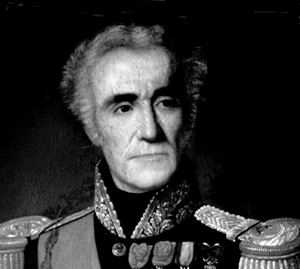General Antoine Simon Durrieu

Born: July 20, 1775
Place of Birth: Grenade-sur-l'Adour, Landes, France
Died: April 8, 1862
Place of Death: Saint-Sever, France
Arc de Triomphe: DURRIEU on the east pillar
Pronunciation:
Joining the army during the Revolution, Antoine Simon Durrieu was elected a capitaine of the 6th Battalion of Volunteers of Landes in January of 1794. He was sent to the Army of the Western Pyrenees with which he served until 1795 and then in 1797 he joined the Army of Italy and the 85th of the Line. Durrieu next joined the Army of the Orient and after arriving in Egypt he distinguished himself at the Battle of the Pyramids . In March of 1799 he resigned due to his health and he set out to return to France. At the end of 1799 Durrieu became an aide-de-camp of General Digonet. Serving with the Army of the Rhine in 1800, that May he fought at Engen, Messkirch, and Biberach before rejoining the Army of the Reserve with his general. In July of 1800 Durrieu joined the Army of Italy.
When war broke out in 1805 Durrieu was assigned to the staff of Verdier's division in the Army of Italy. During the campaign he served at the crossing of the Mincio and the Battle of Caldiero . In 1806 he joined the Army of Naples and in October he fought during the assault of Saint-Andréa in Calabria where he was wounded by a shot to the right leg. At the end of 1807 Durrieu was promoted to chef de bataillon and serving with the staff of the Army of Naples. When Austria declared war in 1809, Durrieu became an aide-de-camp to General Lamarque in the Army of Italy. He served at the conclusion of the campaign at the Battle of Wagram . Durrieu continued to serve in Italy and rewards followed over the next few years as he was named a Knight of the Empire and a Knight of the Iron Crown.
For the Russian campaign of 1812 Durrieu was named deputy chief of staff to Prince Eugene's IV Corps. He served throughout the campaign and was wounded by grapeshot at the Battle of Maloyaroslavetz in October. After surviving the retreat, Durrieu was named commander of the troops of the garrison of Glogau in February of 1813. In June of that year he was promoted to général de brigade and assigned to the general staff of the Grande Armée. Durrieu took part in the Battle of Dresden in August where he was wounded by a shot. Next he was named commander at Eilenburg before he was sent to help defend Torgau. Durrieu remained at Torgau until the city was finally forced to surrender in January of 1814 and he was then taken prisoner.
Durrieu was released and returned to France after Napoleon's abdication and the Bourbon Restoration. The Bourbons named him a Knight of Saint Louis and he became a baron. Durrieu was employed throughout the restoration, but nevertheless he rallied to Napoleon when Napoleon resumed power for the Hundred Days. Durrieu was named chief of staff to Mouton's VI Corps and he served in Belgium that June, fighting at Ligny and Waterloo. At the Battle of Waterloo he was wounded by a shot to the left thigh and taken prisoner. After he was released, he was put on non-activity.
Bibliography
- Divry, Arnauld. Les Noms Gravés sur l'Arc de Triomphe. Paris: L'Harmattan, 2017.
- Six, Georges. Dictionnaire Biographique des Généraux & Amiraux Français de la Révolution et de l'Empire (1792-1814). 2 vols. Paris: Gaston Saffroy, 2003.
Updated April 2018
© Nathan D. Jensen